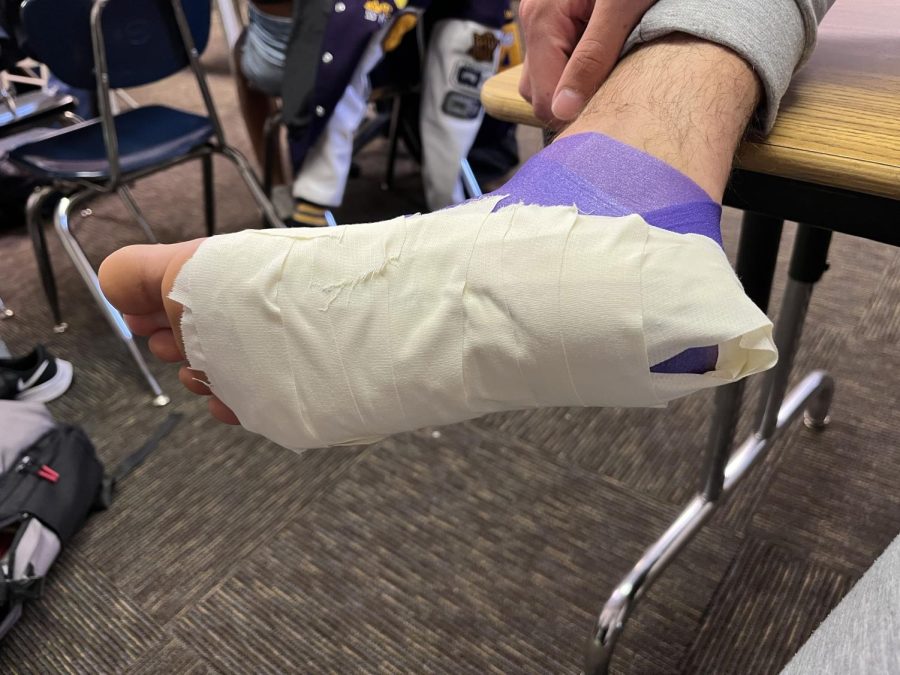How sports injuries affect student athletes
Many high school athletes are unaware of how to control physical and emotional affects when injuries occur.
October 7, 2022
Injuries affect many student-athletes both physically and mentally, but are unaware of how to overcome these effects. Tennis players, for example, can experience elbow injuries whereas basketball players typically injure lower parts of their body.
“It put me in a depressive state because I felt helpless and really wanted to get back on the court but I couldn’t. I felt like everyone was getting better while I was getting worse,” said tennis player Joshua Yu (‘23).
Watching from the sidelines can be mentally devastating for athletes. Many go through breakdowns such as depression, a lack of eating, distancing themselves from friends, and losing the motivation to play their sport.
“It affects them differently based on what sport they are playing and how important their sport is to them. Some of them are very hardcore (going) 120% every time they go out. Others are doing it for socialization and being part of a team, so it all depends on what their overall goal is. But some of them take it very hard and when they can’t compete it’s almost like they get into some sort of depression,” said athletic trainer Diana Hasenpflug.
Emotional reactions are normal, but athletes should not be too hard on themselves during the recovery process. Rather than looking at the injury in a negative way, athletes should spend time trying to improve different areas of their game.
“One thing I found was whenever you mess up one thing in your body like a leg or an arm, you can always work on the other things that are weaknesses in your game,” said basketball player Ori Khasin (‘24).
Everyone has their own mindset with sports and injury recoveries. Athletes must express their feelings especially during the recovery phase. That support must come from family, friends, and coaches.
“Oftentimes, you try to accomplish (simple things) with them so that they can feel more successful about themselves. Make sure they’re striving towards their goals so we can make them feel like we need them, and that they’re ready to come back,” said Hasenpflug.



